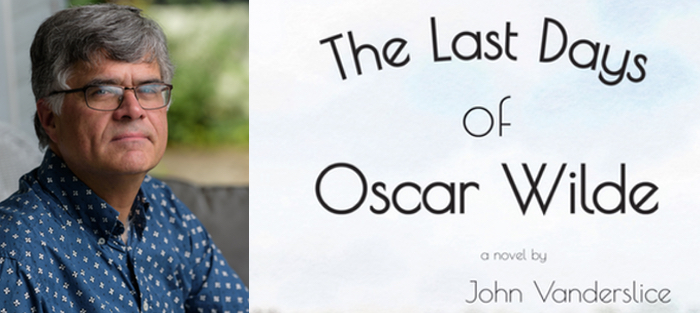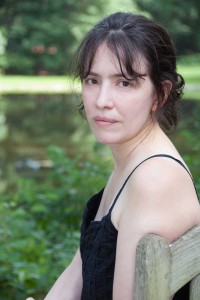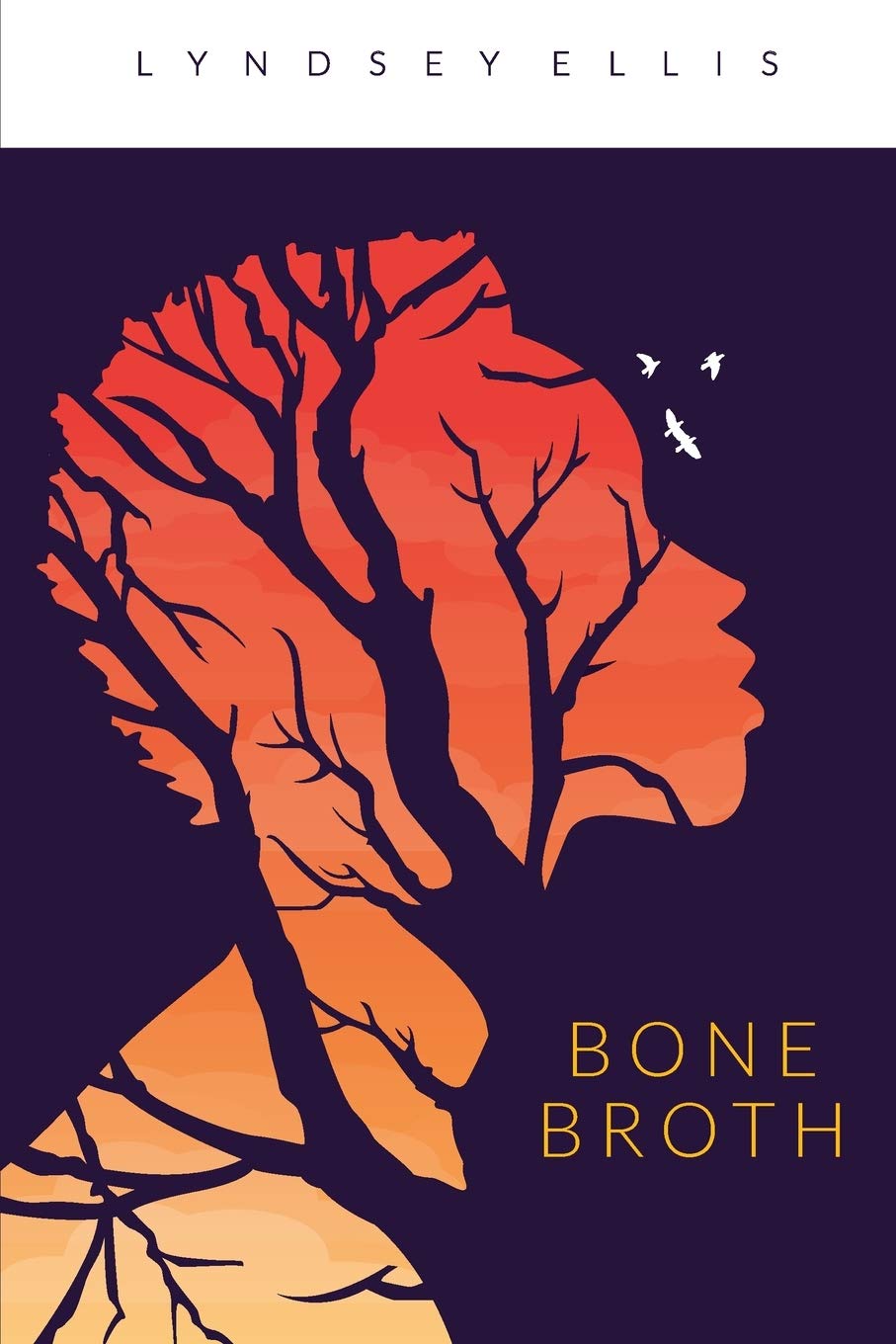John Vanderslice is a Professor in the Department of Film, Theatre, and Creative Writing at the University of Central Arkansas, where he and I were colleagues from the fall of 2004 until the spring of 2017, when I retired from teaching.
John has an MFA from George Mason University and a PhD from the University of Lousiana-Lafayette. With more than eighty publications in journals such as Crazyhorse, Southern Humanities Review, Seattle Review, and Sou’wester, his books include Burnt Norway (2009), Days on Fire (2013), and Island Fog (2014), which was named one of the Top 15 Indie Fiction Titles of 2014 by Library Journal. His third novel, The Last Days of Oscar Wilde, has just been released from Burlesque Press.
The Last Days of Oscar Wilde is a portrayal of the writer at the end of his life and the end of his tether. In Paris, penniless, alcoholic, and surviving thanks to a small group of loyal friends, still prone to fall in love, and still agonising over his betrayal by his beloved Bosie, he wrestles with ill health, loneliness, the scorn of the world, and despair. According to Kirkus Reviews, “Vanderslice has tremendous ambition…readers are swept along by a desire to see Wilde come to some sort of much-deserved peace. A quiet, tender portrait of a literary giant.”
Interview:
Garry Craig Powell: As the title suggests, your new book, The Last Days of Oscar Wilde, is historical fiction. Your two previous books—Island Fog and Days on Fire—also have their roots in history. What attracts you so strongly to this genre?
John Vanderslice: Fiction at its heart is a revelry of the imagination, and I suppose what most attracts me to the historical genre is the notion of inhabiting previous time periods and observing provocative characters—in many case, real-world characters—to whom I have no actual access except through my imagination. After all, no matter how thoroughly researched a historical subject is, finally to dramatize that subject is a leap of the imagination, and thus a pleasure of the imagination. I must admit too that as a fiction writer when I find myself impressed, or simply intrigued, by someone my first instinct is to respond fictionally. Other writers may respond through a more traditional examination, whether academic or biographical. I feel the desire to put them in a story and see how they move there. That’s how the Van Gogh novel and this current Oscar Wilde novel came about. As for the historical fiction stories in Island Fog, the history of Nantucket is so colorful and so powerful, the place in my mind became an intriguing historical character in its own right.
It seems to me that there are basically two approaches to writing a historical novel based on a real character: the ‘biopic’ approach, in which you attempt to cover the protagonist’s whole life, as Hillary Mantel does in Wolf Hall and its sequels, or what we might call the ‘premise’ approach, in which the author takes a particular conflict in the protagonist’s life and deals with that, as does Penelope Fitzgerald in The Blue Flower. Do you agree, and if so, how would you characterise The Last Days of Oscar Wilde?
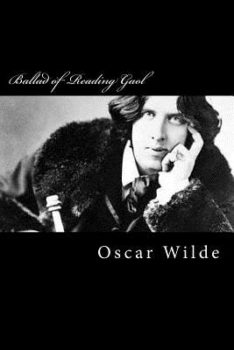 Absolutely, I would agree. I’ve tried both approaches with my two historical novels, and each contains significant challenges. The Van Gogh project certainly amounts to me attempting to encapsulate nearly his whole life—with notable skips—whereas with Last Days I’ve deliberately tried to emphasize just the last two years of Wilde’s life. The reason for the latter choice is that my initial interest in Wilde was, in fact, purely that latter period. Wilde, after all, was so renowned and so familiar during his lionized days in London. Familiar both to his contemporaries and to us. His wit, his deliberately outrageous pronouncements, his lavish lifestyle, his desire to stay in the public eye. That Oscar Wilde’s story didn’t strike me as needing to be told, and, frankly, didn’t interest me very much. What did interest me was the Oscar Wilde of his short post-prison period. Except for Ballad of Reading Gaol, written within months of his being released and moving to the continent, he produced no creative work. And he was destitute. And he had so few loyal friends. What kind of life must that have been for such a man? That question intrigued me and drove me to eventually write the book I did. That’s the “premise” you refer to in your question.
Absolutely, I would agree. I’ve tried both approaches with my two historical novels, and each contains significant challenges. The Van Gogh project certainly amounts to me attempting to encapsulate nearly his whole life—with notable skips—whereas with Last Days I’ve deliberately tried to emphasize just the last two years of Wilde’s life. The reason for the latter choice is that my initial interest in Wilde was, in fact, purely that latter period. Wilde, after all, was so renowned and so familiar during his lionized days in London. Familiar both to his contemporaries and to us. His wit, his deliberately outrageous pronouncements, his lavish lifestyle, his desire to stay in the public eye. That Oscar Wilde’s story didn’t strike me as needing to be told, and, frankly, didn’t interest me very much. What did interest me was the Oscar Wilde of his short post-prison period. Except for Ballad of Reading Gaol, written within months of his being released and moving to the continent, he produced no creative work. And he was destitute. And he had so few loyal friends. What kind of life must that have been for such a man? That question intrigued me and drove me to eventually write the book I did. That’s the “premise” you refer to in your question.
The challenge with such an approach, for me, was to still suggest the larger life that had already happened to Wilde—to show how his latter period of social and economic downfall drastically contradicted with his earlier life—without going into pages upon pages of summary. I wanted to keep my story focused on my story, but yet that story only truly made sense—was only truly affecting—when viewed against the larger sweep of his life. I eventually decided to place at certain intervals short scenes from that earlier life. And to an extent, too, I am relying on the reader already having an idea about Wilde and about his overall life story. That’s a risk, but with someone like Wilde not necessarily a wrong-headed one.
The obvious advantage to choosing fictional protagonists, as Sebastian Faulks does in Birdsong, or Louis de Bernieres does in Captain Corelli’s Mandolin, is that you can make up the plot, subject only to the historical setting. What are the advantages of having a protagonist as famous as Van Gogh or Oscar Wilde?
That’s a very good question. Sometime I worry it’s not an advantage at all! But one obvious advantage is that with a figure as familiar as Vincent Van Gogh or Oscar Wilde, their existing notoriety alone is going to attract readers to your story. The public already knows who Vincent is, who Wilde is. Their basic identities do not need to be explained. And your interest in their story does not need to be justified. Then of course there is the simple pleasure of bringing alive a historical person, making their conversations seem believable, their actions real, even an action as small as lighting a cigarette or kneeling in a church. Most important is that they seem psychologically credible. It must feel to the writer and to the reader that, for instance, the Wilde of my novel could have been the actual Wilde. To pull that off, you, the writer, have to be both an historian and a mind reader. I very much enjoy occupying both of those roles.
The question of research seems unavoidable when discussing historical novels, especially ones with subjects as well-known as Wilde. Could you tell us whether you did the research first, and then wrote, or did it the other way around, as Martin Amis recommends?
A bit of both, actually, as seems to be the case with all of my historical projects. Usually how it works for me is that I do enough research until I have in my head what feels like a character I can intuitively understand, one that has psychological integrity, if you will. And, of course, I also need to know enough about the subject’s historical life to know a place to start. But what happens is that after I start I realize I need to know more about this particular person or this particular setting or this particular social custom, and so I will carry on more research even as the writing continues. That new research inevitably suggests other scenes to me or suggests changes to scenes I have already written. I usually end up with more than I need for my book, more than I can fairly fit in. So eventually arriving at the final versions of my novels is a matter of winnowing down, pairing away what seems less relevant or simply inaccurate. In the case of Last Days, I did not write the book in linear order, which is unusual for me. I wrote what scenes interested me based on the research I did, and only later figured out how I would arrange them.
Another unavoidable question with a novel like this one is how truthful it is, and indeed how imaginative you’re entitled to be. What’s your attitude to this? How much did you make up?
That’s the tricky question with historical fiction, isn’t it? And the truth is, if a book is truly historical fiction—that is, both history and fiction—you are at the same time making up everything and making up nothing. Every scene in Last Days was suggested from the research I carried out, and from what I knew were the obvious lines of conflict in Wilde’s life then. But to say that research suggested a scene to me underestimates exactly how much of one’s fictional imagination one must bring to bear to make that scene seem alive and real to a reader. A source can inform you that a certain person met another person on a given day at a given place and they discussed a given subject. The source might even provide specific sentiments that were expressed and exact lines spoken. Frank Harris’s book Oscar Wilde: His Life and Confessions (1916) indeed contained many such scenes, several of which were useful to me. But finally making that scene come alive takes much more than showing people at a place. To bring the scene vividly alive in your mind and then to transfer that vividness to the reader takes imagination. There’s no way around that. This is why History and Historical Fiction are two separate genres.
I thought you did a particularly good job of evoking fin de siècle France. It must have helped that you’d already written extensively about Van Gogh, who was an exact contemporary, wasn’t he? Presumably there’s something about that particular time and place that fascinates you?
 Yes, I suppose so. But at the core it was simply Van Gogh and Wilde who fascinated me. That said, there is something innately intriguing about the fin de siècle period, and I’m old enough that when I was coming up in university, as a student of writing and literature, the fin de siècle authors were still considered au courant, still studied as notable masters and relevant figures to our own time. They seemed to me not so long ago at all. I don’t think that’s necessarily true anymore.
Yes, I suppose so. But at the core it was simply Van Gogh and Wilde who fascinated me. That said, there is something innately intriguing about the fin de siècle period, and I’m old enough that when I was coming up in university, as a student of writing and literature, the fin de siècle authors were still considered au courant, still studied as notable masters and relevant figures to our own time. They seemed to me not so long ago at all. I don’t think that’s necessarily true anymore.
And I think a particular reason why that period and its authors interests me is that I, and all of us, can’t help but view them from the other side of the mass wreckage that became the twentieth century; wreckage, of course, that appears to be only becoming more exaggerated in the twenty-first century with the toxic influence of figures like Donald Trump. The late nineteenth century was the last time that humanity actually imagined that it thoroughly understood the world, and owned the world. There’s a solidity in that confidence that is admirable, but at the same time, by the late nineteenth-century significant cracks had already started to appear in it, cracks that only accelerated in the twentieth century. It’s a period of extremely tenuous balance—and thus it’s ripe for multiple fictional treatments.
I also admired the complexity of your characters. Bosie is the villain in the novel, if there is one, and he makes a far more interesting antagonist than his father, the Marquess of Queensberry, would have done. If I can give a hint without giving too much away, I found the ending revealing; it suggests that we (and perhaps Wilde too) have misjudged him.
Bosie Douglas is indeed an extremely complex figure. In my mind, he was just as much of a villain as my novel suggests, but at the same time he was a lot more than that. The truth is, he and Wilde were in love—a love that in many ways approximated an unhealthy addiction—and desperately needed each other. But they also fought with each other and hurt each other and carried around a lot of resentments toward each other. It was a relationship neither could finally distance themselves from, for good and bad. Years after Wilde died, Douglas, who at that point had married, tried to completely distance himself from Wilde and from homosexuality. This was around the time of World War I, that very nationalistic period. He wrote a book that essentially said that Wilde represented the greatest evil possible to English society. And that shows what to me is most important to know about Douglas. He was incredibly impulsive. If he felt in love with you, he felt incredibly in love with you; if he felt angry with you, he felt incredibly angry with you. If he felt like blowing you off, he did it in the most extreme, nasty, public way possible. But the same impulsiveness meant he might, only a moment, or a year later, completely contradict himself. He was a quandary of turbulent, erratic emotions and impulse. To an extent, that’s what made him dangerous as a lover. One never knew what to expect from him.
I definitely intended to suggest with that end scene that Douglas did, in fact, regard Wilde with the highest esteem, no matter what he might have said or done to Wilde. At the same time, there’s a bit of a showman evident in that last scene, a bit of a competitor. Douglas is trying to outdo everyone else, to say “Fuck off. None of you loved him like I did.” I think that was both true and not.
Wilde himself is an incredibly difficult character to write, I think, because he’s been portrayed so many times in films—well-known ones—and most of us have a very sympathetic view of him. But you manage to show that he could be an exasperating friend, and in some cases, such as that of Frank Harris, not a very honest or loyal one either.
Yes, that’s well said. And true to my intentions. I remember thinking, while I was researching and writing this book, “I don’t think I actually like Oscar Wilde that much.” I meant the person of Oscar Wilde. Obviously, I was fascinated by him, as many of us are, and I felt bad for the excessive punishment he suffered through, but I think I would have found him a difficult friend to keep. Mainly because in his own way he was just as self-involved as was Bosie Douglas. They were quite the pair. Wilde was certainly more charming than Douglas and more sweet-tempered (that’s an adjective Harris uses frequently in his recollections), but he could also be a real bother. To be honest, the character I felt most at home with in the novel was Robert Ross. I understood him completely. Wilde, as much as I sympathized with him, I viewed from a bit of a distance, which may explain why I felt compelled to call him “Wilde” all the way through. In any case, for the sake of fairness, and of truth, I wanted to present a Wilde that captures all of what he was. He could still be perfectly exasperating in his latter days, even while he was also a victim.
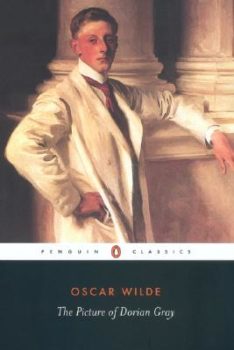 I read somewhere that you made a deliberate decision not to try to reproduce Wilde’s epigrammatic speech. Could you explain why?
I read somewhere that you made a deliberate decision not to try to reproduce Wilde’s epigrammatic speech. Could you explain why?
Yes, this is true. And I never seriously considered doing so, in fact. For a variety of reasons. First, while Wilde is renowned for his elegant and provocative witticisms—sometimes I feel Dorian Gray was written for no other reason than to put Wilde’s stock of them into the mouth of Lord Henry—I tend to see those as part of a consciously crafted image on his part, an image that was entirely blown apart by the experience of the trials, of prison, and of the cruelty continued against him after his release. The Wilde of the latter period would have had little reason to keep up any sort of pompous charade and was disinclined to do so. Secondly, as sharp and memorable as Wilde’s epigrams are—as conscious and deliberate as they are—I find it hard to believe that anyone, even Wilde, could have spoken that way in everyday conversation, as a matter of course. I suppose in this book I wanted to “get behind the curtain” and show the man as he may really have been in his everyday state, sad as it was then.
Wilde was Anglo-Irish, the son of a knight, and spoke, as far as we can tell, like an Englishman of the upper classes. Did that present any challenges to you, as an American author?
Wilde abandoned all traces of his Irish accent after he was ridiculed for it at Oxford. Henceforth, he attempted to mimic the speech of an English gentleman, apparently successfully. This fact is behind the remark Wilde makes in my opening scene that accents are a simple matter of playacting. He knew of what he spoke. So it wasn’t so much the Anglo-Irish aspect of his speech as the Englishness of it that I needed to consider. And my instinct as a writer, rightly or wrongly, is typically to tone down any exaggerations of manner in order that my protagonist not come across as a caricature. So, really, how Wilde speaks in my novel is a kind of compromise between nineteenth-century diction and what feels comfortable in my ear. In that manner, I hope, his personality and his continuing trials are what remain highlighted.
As Jennifer Steil comments in her blurb, the novel vividly conveys “the misery and waste of Wilde’s final days” and “the destructive power of senseless persecution.” Is that theme what drove you to write it? Were there others?
I really appreciate Jennifer’s kind remark. I think she’s absolutely correct about what the novel shows. But what connected me to Wilde’s story, and what drove me to write it, was more the first part—the abject misery of Wilde’s last days—than the persecution. Of course, these two things are related. Without the persecution, there would have been no misery, but it was the misery that was staring me in the face as I thought about this project and worked on it. I suppose one is only encouraged to take on big subjects if one feels a sense of sympathy and emotional connection with the subject. I can’t see writing hundreds of pages about an individual one does not connect with.
Even so, in spite of the grimness of the subject, you manage to inject a lot of your trademark humour into the novel, especially with some of the minor characters. I appreciated the comic relief.
Thanks. Yes, part of that is my natural drive as a writer. As you know, I’ve written some short stories over the years that are consciously, and even absurdly, humorous. It’s difficult to simply suppress that vein, even with a subject as serious as Oscar Wilde’s final days. But, also, a part of the reason for including such characters and scenes was in fact to make sure that my book was not just one long, tedious rendition of misery. Not only would that not make fun reading, but it would not have been accurate either. No one denies that Wilde’s last years were extremely hard on him, but there are those who swear he managed to remain happy even then, or at least to find occasions for happiness within the broader arc of gloom. So that’s what I was aiming for in such scenes: to offer Wilde and the reader temporary shelter, if you will, in a generally downward arc that we all know cannot end well.
Great strides have been made toward an acceptance of homosexuality since Wilde’s days, and in many developed countries—particularly among young people—it’s become much less of an issue. So in what ways do you see a story like Wilde’s still resonating or feeling particularly relevant today?
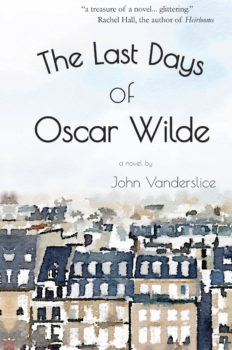 That’s a good question. According to Frank Harris, Wilde prophesied that English society—and by extension the Anglophone world—would eventually come to appreciate and understand and revere what he would have called “Uranianism” or “unisexualiy.” Now, one must be careful about simply accepting any of Frank Harris’s claims, as he could exaggerate and even lie; but it’s certainly come to pass, as you say, that homosexuality in many developed countries is less an issue. In fact, there was already a certain amount of acceptance in Wilde’s day, an understanding that English society should leave homosexuals alone provided they did not parade their homosexuality in everyone’s faces. (There is even a strong and abiding suspicion that the reason the British government persecuted Wilde so relentlessly is that it was trying to distract the public from the fact that the Prime Minister, Earl of Rosebery, was himself homosexual.)
That’s a good question. According to Frank Harris, Wilde prophesied that English society—and by extension the Anglophone world—would eventually come to appreciate and understand and revere what he would have called “Uranianism” or “unisexualiy.” Now, one must be careful about simply accepting any of Frank Harris’s claims, as he could exaggerate and even lie; but it’s certainly come to pass, as you say, that homosexuality in many developed countries is less an issue. In fact, there was already a certain amount of acceptance in Wilde’s day, an understanding that English society should leave homosexuals alone provided they did not parade their homosexuality in everyone’s faces. (There is even a strong and abiding suspicion that the reason the British government persecuted Wilde so relentlessly is that it was trying to distract the public from the fact that the Prime Minister, Earl of Rosebery, was himself homosexual.)
But the sad truth of it is that the American acceptance of homosexuality and homosexual persons was extremely late in coming. Ten years ago, the majority of the American public was opposed to gay marriage. And I can tell you that in my early years of university teaching—less than twenty years ago—when I raised the issue of gay marriage as a topic for argumentation in my writing classes, it received the frostiest reception possible. I was considered to be out of mind to even raise the possibility of gay marriage becoming legal. Even today there are pockets of American society, especially in the Bible belt, that regard homosexuality as the single worst offense possible by a human being. After all, a known pedophile was almost elected recently in the state of Alabama because he claimed that it was the LGBT community that invented the numerous allegations against him. There is still a sizeable percentage of people in America who will believe almost anything negative about LGBT people. And, unfortunately, under the current American administration, persecution of those minorities has taken on a new cachet; it is almost considered acceptable again to be openly homophobic, or openly racist, or openly misogynistic. I am convinced that this is a temporary state of affairs that will be relieved when the current national nightmare of the Trump administration passes. But for right now, in this country, the idea of persecution feels very relevant.
The novel might also be seen as a kind of paean to friendship, do you agree? If there are any heroes, I suppose they’d be Reginald Turner and Robert Ross, particularly Ross. Perhaps Jean Dupoirer too, although he’s a very minor character. Even Harris, in his sometimes insensitive and not wholly disinterested way. Still, one is struck that in spite of the colossal cruelty that Wilde endured from society as a whole, he had some very loyal, truly loving friends. That seems to offer at least a gleam of hope.
Absolutely. I could not say that any better. And that’s a structural component, an organizing element, that only clarified itself after I’d been working and writing for a time. After composing a series of scenes for the novel and then trying to arrange them, it became clear to me that both the facts of Wilde’s later years, and my own compositional interests, were directly tied to this idea of friendship. It was Wilde’s friends that kept him afloat those last years. A few of them—Robert Ross in particular—were fiercely devoted, even more devoted, I dare say, than he was to them. And thus at a certain point I made the conscious decision to emphasize those scenes in which his closest friends participated. Also, to be honest, if I tried to reference and/or show all the many people with whom Wilde interacted, even in his later years, it would have been an overwhelming cast of characters. It made more sense from both a thematic and writing standpoint to focus my attention on the really important ones.
Thank you once again, John. Good luck with the book, which, as I think this interview shows, is a sensitive and thoughtful imaginative recreation of Wilde’s final years. I hope it does well.

